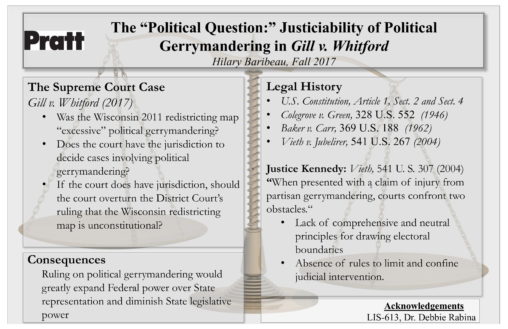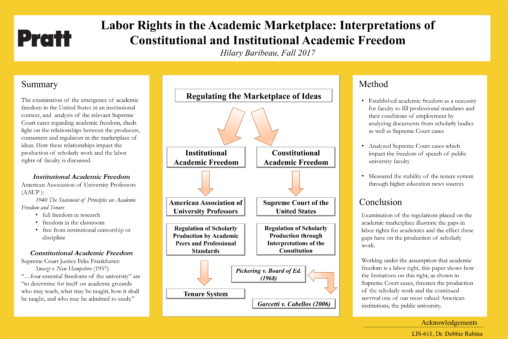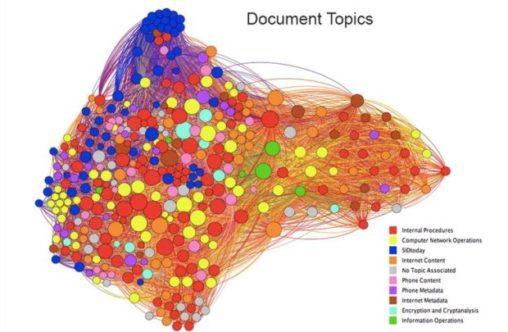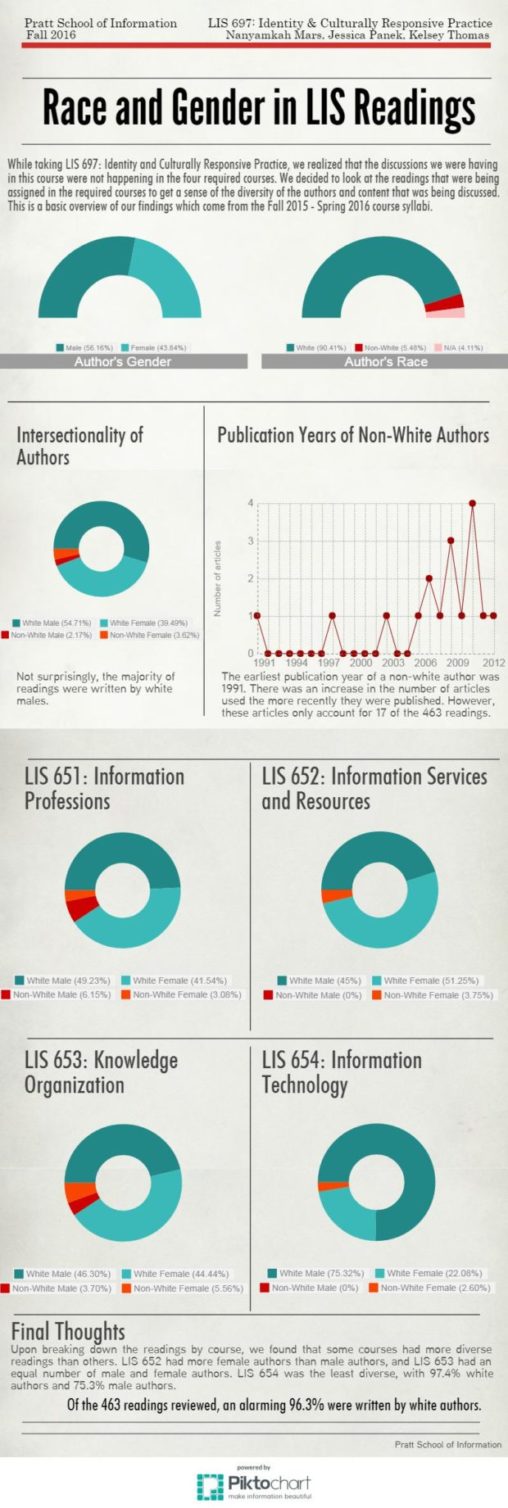Tag: policyPage 1 of 2
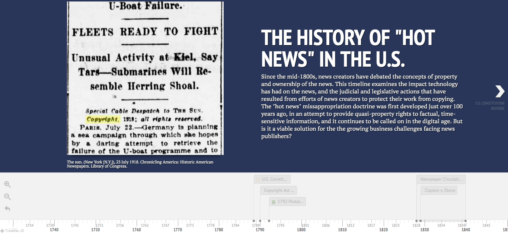
This website examines the history of attempts to copyright the news in the U.S. The Timeline shows notable technological innovations and court cases that have helped shape the current news landscape and copyright arguments. The Overview provides context, pulling together research of scholars over time to show how the history of copyrighitng the news continues to repeat itself, and asks: Is this the best solution for saving the news industry?
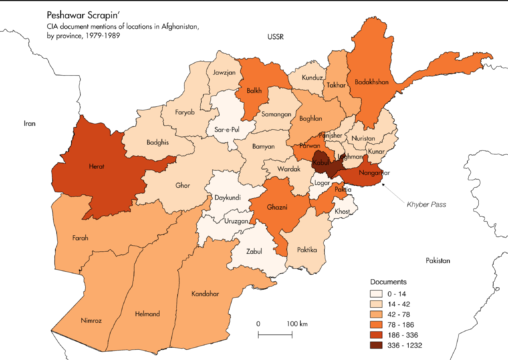
Peshawar Scrapin’ is an exercise in rapid subject tagging of poorly-described of textual material. Using automatic and human-curated methods, I scraped 7,000+ PDF documents on the Soviet-Afghan War from the CIA’s website, expanding the CIA’s deficient metadata with the names of relevant persons, factions, places, and concepts.
Local news is dying and a new trend is emerging. Librarians are partnering with local journalists in various and unusual ways. It’s both a radical yet sensical way to try and rescue local news. The fact that libraries are trusted sources among local communities only strengthens the concept and the potential partnership. This paper will explore the different ways in which libraries and journalists are joining forces to tackle the local news crisis across the country
“You Must Be Sick…” is an experiential project that explores the day-to-day work of commercial content moderators. Presented as an art book, this project asks the viewer to see the unseen; to viscerally understand the extent of the digital dirty work that goes into making the internet “safe for all.”
In 2017, National Archives and Records Administration (NARA) approved Immigration Customs Enforcement (ICE)’s request to destroy records of in-custody deaths, assaults, and misconduct in timelines that range from 3-20 years. This project explores the history of ICE’s recordkeeping practices and examine NARA’s justification for this appraisal.
The history of the Democratic People’s Republic of Korea (DPRK) — known globally as North Korea — is one fraught with conflict, human rights offenses, and rampant propaganda. Information policy, it seems, is at the very heart of the Kims’ ability to control the population.
This empirical research paper targets access to justice within the realm of the information professional to find what has been done to promote services or counsel that is of low cost or free of charge to the disadvantaged. … The Sustainable Development Goal (SDG) 16 and 16.3 recognize the outstanding work that both public and private sectors accomplish through legal groundwork.
The purpose of this study is to perform an exploratory examination of the services public libraries provide to state correctional facilities. Due to the limited data available on these services, this study examines the transparency of public library websites based on the public library systems of New York state.
The focus of this project is to visually represent the virtual path information on the internet must follow in order to complete a request. This way, every stop that information takes to get to and back from its destination is clear to the viewer. In clearly representing this, it will allow for people to understand the way that information travels in that process.
This poster presents my research of how current art museum practices are shifting systematic gentrification of their audiences through diversifying staff, collections, and community engagement.
This paper examines incidents occurring in the 20th century onward, with particular focus, though not exclusively, on the destruction of cultural heritage institutions and sites during World War II, the breakup of Yugoslavia and subsequent civil wars, and the current conflicts in Iraq and Syria. Through these examples, I intend to discuss various preventive measures employed in the face of different situations, evaluate and compare the successes and failures in each instance, and suggest ways that further destruction can be avoided.
Libraries around the world have been concerned with the digitization of theirmaterials for the past two decades. A digitally available global library is growing, thanks to immense projects like Google Books, and large academic libraries that have been ceaselessly digitizing their materials as new scanning and data storage technologies continue to revolutionize the field. This presents a question of a huge amount of labor—who will do it?
First, I want this paper to shine a light on the actual labor performed by book
scanners for Google, and for other, smaller, library digitization projects. Manual labor continues to drive technological advancement, whether it’s in Apple’s Chinese factories where women construct iPhones for menial pay, or in Silicon Valley where Google’s scanning team works overnight to digitize the world’s libraries.
Second, I want to reveal the ways in which this labor goes undiscussed, both as
(likely) company policy at Google, and in smaller libraries, public and private, around world. Why does this labor remain hidden? The underground sensation that surrounds the Google’s scanning labor, and the way that the transformative labor of digitization goes unremarked, gets us close to the very old class conflict that is at the center of the new tech economy.
The first section of this paper will look at artist Andrew Norman Wilson’s
findings in his art pieces dealing with Google’s book scanning operations, and what we can know about labor conditions there. I then want to connect those findings to labor in smaller digitization undertakings at academic, public, and private libraries around the country. This leads to a discussion of automated robotic book scanners, and the future of library material digitization in the burgeoning convenience economy.

The People v. Edward Snowden
Edward Snowden announced he will return to the United States to stand trial if the US government guarantees him a fair trial that will allow him to make a public interest defense.
LIS 611 Information Policies and Politics, will give him one.
Please join us at the #infoshow as we let the jury decide:
Judge: Briana Moore
Edward Snowden: Kolbe Resnick
For the Prosecution: Elizabeth Frank ; William Hagenah ; Coral Salomon ; Michele Drohan
For the Defense: Maryanne Hall ; Laura Childs ; Carmen Irabien ; Allison Nellis
Expert witness for the defence representing NSWBC: Laurin Paradise
Expert witness for the prosecution representing NSA: Debbie Rabina
Court recorders and Jury: Nataya Culler ; Mia Bruner ; Samantha Levin ; Katherine Martinez
With votes for the audience
This study aims to shed light on conversations of surveillance over the past 40 years of American discourse, using a corpus of Congressional records, mainstream and independent news sources, movie scrips and reviews, and archival materials. By comparing general and specific sentiment measurement across these various sources, we examine points of similarity and difference in attitude across the present and past, cultural and countercultural, institutional and popular with regard to surveillance—watching surveillance, as it were, through assemblages of text and data.
